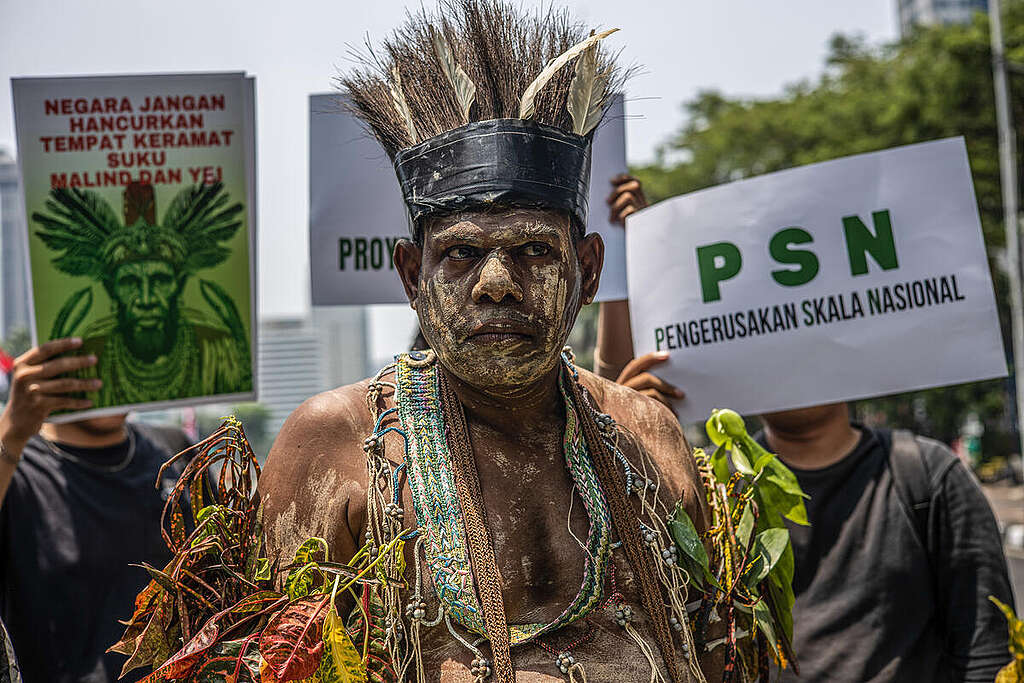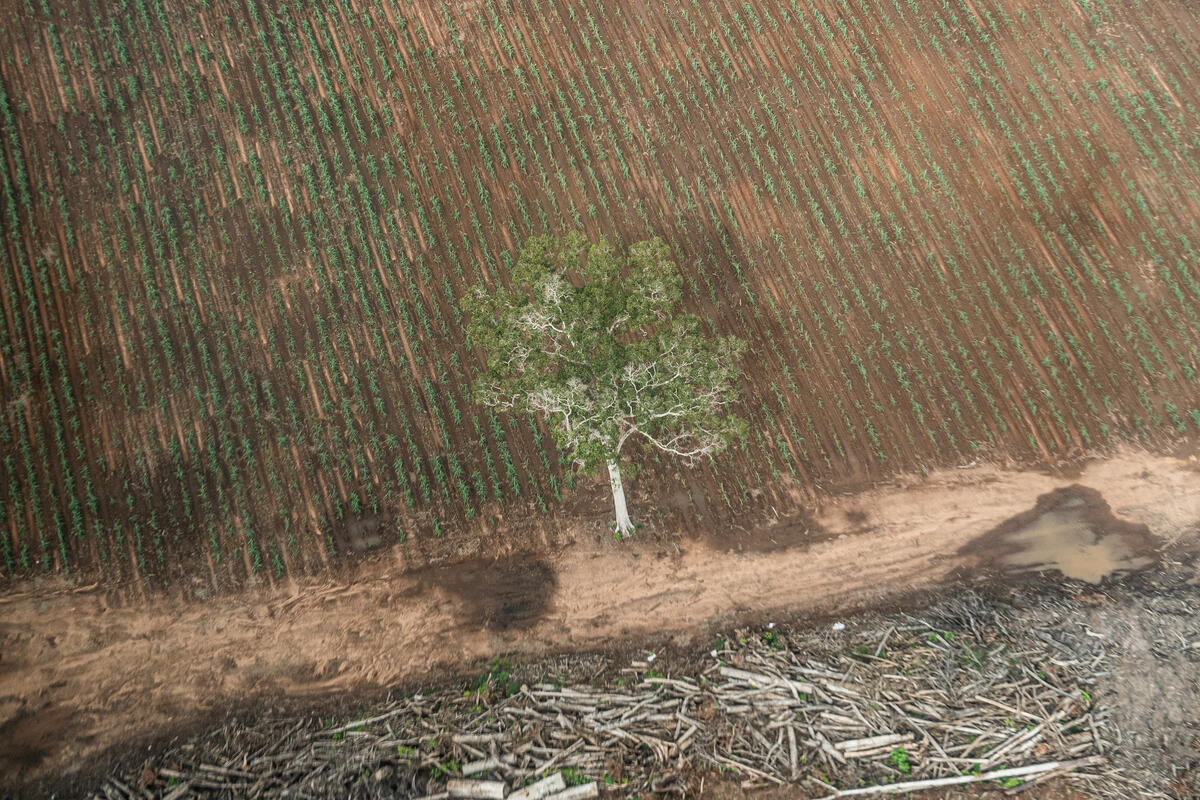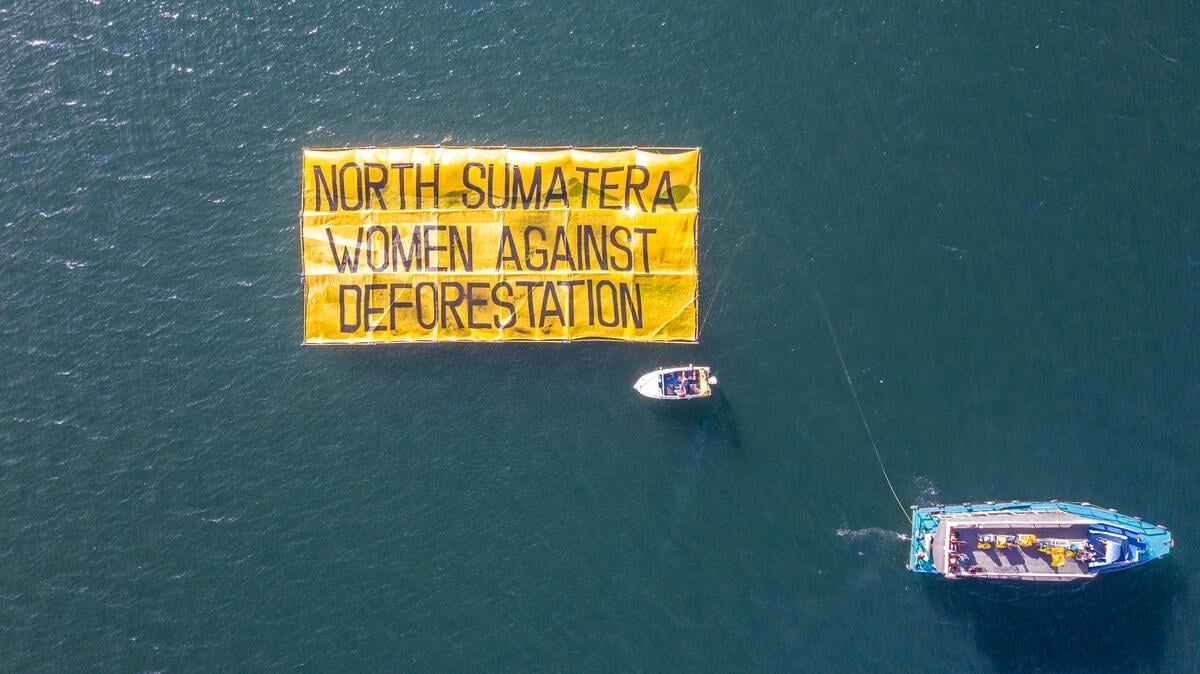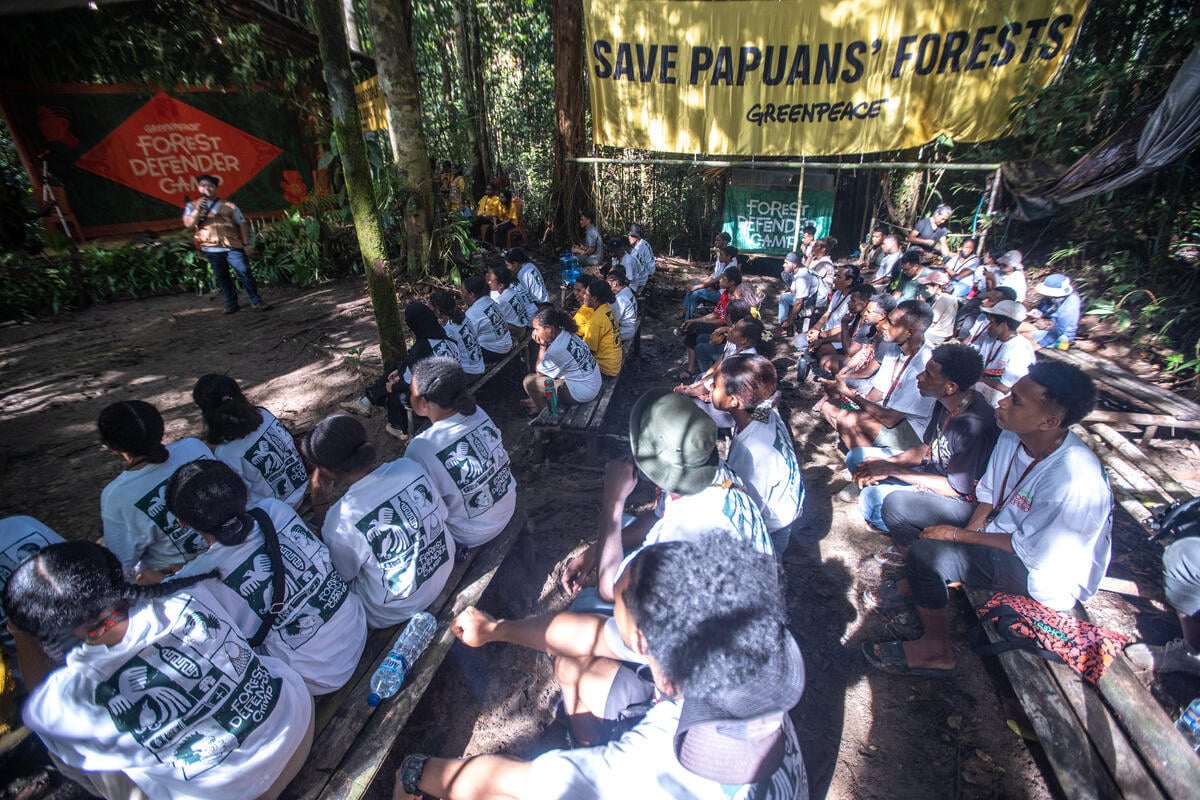
Belém, 14 November 2025 – Greenpeace International has joined the Climate Action Network (CAN)[1] – a coalition of more than 1,900 civil society organizations worldwide – to oppose the so-called “Belém 4x Pledge,” an initiative to increase biofuel use fourfold over the next decade. Biofuel expansion has been proven to threaten forests, food, Indigenous Peoples and local communities, as well as climate targets. Biofuels are a false solution to address the energy and climate crises.
Syahrul Fitra, Head of the Global Forest Solutions Campaign at Greenpeace, said, “Increasing biofuel production clearly threatens the existence and territories of Indigenous Peoples, as well as remaining natural forests, while raising the risk of forest and peatland fires. Even without the Belém 4x Pledge, the Indonesian government already intends to sacrifice forests for energy projects like biodiesel and bioethanol.
“The Belém 4x Pledge initiative will only serve to legitimize the destruction of natural forests and the seizure of Indigenous land in Indonesia under the guise of green energy, even though biofuels are clearly a false solution.”
Refki Saputra, Forest Campaigner at Greenpeace Indonesia, added, “The 560,000 hectare National Strategic Project (PSN) for sugarcane and bioethanol in Merauke, West Papua, is an example of how ‘bioenergy’ destroys forests and tramples on the rights of Indigenous Peoples. According to our calculations, clearing the natural vegetation for this project could produce emissions equivalent to 221 million tons of CO₂,[2] or as much as the annual emissions of 48 million cars.[3] It dwarfs by almost twenty times the annual FOLU carbon sink that Indonesia hoped to achieve by now.[4] This alone makes Indonesia’s climate target, presented at COP30 Belém, impossible to achieve.
“A further example is the additional 380,000 hectare area newly designated by the Coordinating Minister for Food, Zulkifli Hasan,[5] to produce B50 biodiesel fuel in West Papua. The complete conversion of these landscapes would release an additional 162 million tonnes of CO₂ equivalent into the atmosphere.”[2]
Notes:
[1] COP30: CAN Rejects Belém 4X Pledge on Sustainable Fuels as Credible Pathway to Just Transition – Climate Action Network.
[2] This figure has been obtained by calculating the above and below ground biomass stocks for the different mapped vegetation types and converting these to CO2 equivalents according to the Indonesian government’s method.
[3] Based on estimated annual emissions of 4.6t CO₂ per car.
[4] Under the LCCP_L scenario set out in Table 1 of Indonesia’s 2nd NDC (2025).
[5] According to maps of the B50 plan involving Merauke and Boven Digoel districts in a presentation by the Coordinating Ministry for Food Affairs dated 29 September 2025.
Media Contacts:
Budiarti Putri, Greenpeace Indonesia, +62 811-1463-105
Igor O’Neill, Greenpeace Indonesia, [email protected] +61 414-288-424



